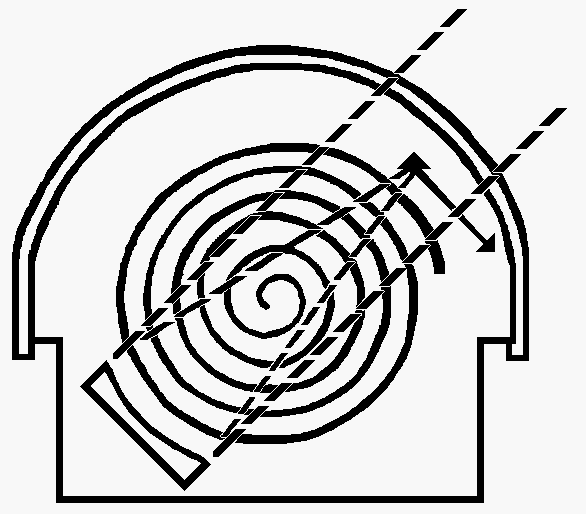![]()
Make plans to attend a star party with your local astronomy club!
BPAA is building an observatory for use by members on clear nights. (Here's the plans for construction). But we also get together and set up our telescopes side by side for a night under the stars. Observing is more fun when you have people to share the excitement with. It's a great way to meet new friends, learn about amateur astronomy, and get some great views of the sky. Regardless of your experience level, there will be something to learn and something to see for the first time.
If you have a telescope or binoculars, bring it along. Don't worry if you don't have a fancy telescope. No matter how modest it is, it is most certainly better than the one that Galileo had to work with. An experienced astronomer can help you find objects within reach of your scope. And if you don't have a telescope, attend and (with the owner's permission, usually gladly given) look through a variety of telescopes.
If you are thinking about getting a telescope someday, that's an even better reason to attend. Star parties offer the opportunity to compare commercial or home-built equipment. Amateurs are usually quite eager to give verdicts on the performance of the items they've bought. Experienced astronomers would like everyone to view through a variety of telescopes before making a purchase -- you'll be able to make a wiser decision.
Here's a few tips to make the event more enjoyable:
Even in summer, it can still get chilly at night. It is impossible to have fun at a star party if you are cold. As you will be standing or sitting much of the time, you won't be as warm as you would be if you were out for a brisk walk. Dress warm in layers. Bring more clothes than you think you will need. If you don't need the clothes, no harm done; if you do need them you will be glad to have them. Many people have left a star party earlier than they wanted to because they just got too cold.
If you might stay late, bring along a snack and something to drink. A light snack and some water (or hot drink) seems to restore energy levels and even help tired eyes. Note that abandoned cookies should not be presumed up for grabs, unless nobody is looking!
Try to arrive before dark. If you will be arriving after dark (or leaving early), be aware of your car's headlights. Try to avoid flashing your lights over the telescope field; use your parking lights as you turn into the parking lot. It takes 20 to 30 minutes for your eyes to get fully dark adapted and only a second or two of white light to make you start over again. Don't use white flashlights for the same reason. If you don't have a red flashlight, get some red cellophane and put it over the lens with a rubber band (or paint the lens in red nail polish, or cut a circular piece out of a red plastic report binder and place it under the lens). Red light has almost no affect on our night vision.
After dark, be especially careful around the telescopes: don't run or move quickly. There are often wires and power cables connecting equipment that are easy to trip over in the dark.
Never touch a glass optical surface (such as the end of the eyepiece).
If you come to a star party without a telescope please park some distance away from the observing site to save room for those with heavy equipment to carry (don't park in front of the BPAA Observatory unless you have equipment to unload or you have trouble walking).
Avoid loud and boisterous behaviour. Star-gazing is a quiet, peaceful activity.
Don't litter.
Finally, don't be afraid to ask questions. The only stupid question is one that is not asked. Astronomers love to talk about their hobby and are normally happy to explain things at length.
The moral? Think ahead before you come out to a star party, and everyone will have a great time under the stars!
![]()
Back to
Or, return to the home page of the
 Battle Point Astronomical
Association.
Battle Point Astronomical
Association.
![]() Return to the top of this page.
Return to the top of this page.